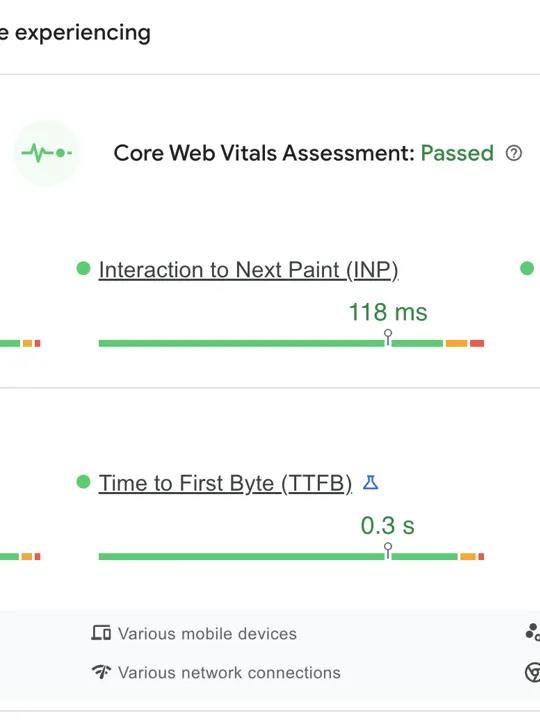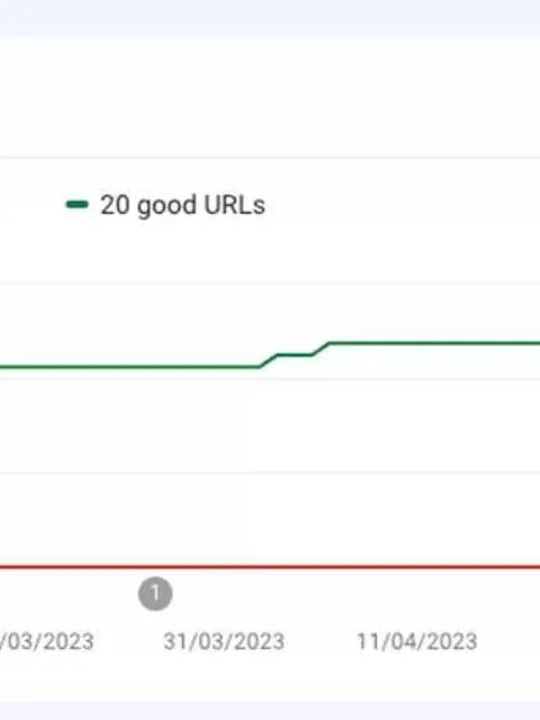The Importance of Website Speed, How to Test it, and Tips to Improve
Did you know that a 1 second delay in page load time equals 11% fewer page views, a 16% decrease in customer satisfaction, and a 7% loss in conversions? That’s right, just from one single second of delay.
For businesses, website speed is a critical contributor to your digital experiences. It significantly influences user experience, search engine optimisation (SEO) rankings, and conversion rates. A fast loading, responsive website improves user satisfaction, encourages longer visits, and increases the likelihood of conversions. In contrast, a slow website can lead to user frustration, higher bounce rates, and reduced conversion rates. Not to mention apprehension about returning to your site in future.
As a hospitality digital marketing agency, we come across hundreds of websites and regularly run audits and checks to optimise our clients’ sites to perform better. Below, we’re going to discuss the importance of website speed, outline methods to test your site's performance, and provide practical tips to enhance your site's speed, helping you understand why a responsive site is paramount to your business.

Why Website Speed is Important
As a page load time goes from 1 - 3 seconds, the probability of bounce increases by 32%. This increases to a further 92% if the page load goes up to 1 - 5 seconds and 106% from 1 - 6 seconds. To minimise the bounce rate of your website visitors and hold their attention for longer, website speed is critical for user experience, SEO rankings and conversion rates.
User Experience
Attention span: Users today expect websites to load quickly. Studies show that a majority of users will leave a website if it takes more than a few seconds to load. This short attention span means that a slow website can quickly drive away potential visitors, leading to lost opportunities and engagement.
Bounce rates: The term "bounce rate" refers to the percentage of visitors who navigate away from a site after viewing only one page. Slow websites have significantly higher bounce rates. When users encounter a slow-loading page, they are more likely to abandon the site and seek information or services elsewhere. This not only affects user experience but also impacts overall site performance and metrics.
SEO Rankings
Google’s algorithm: Site speed is a critical component of Google's ranking algorithm. Faster websites are prioritised in search engine results, while slower sites are penalised. This means that a slow website can negatively affect your search engine rankings, making it harder for potential visitors to find your site through organic search.
Mobile first indexing: With the advent of mobile-first indexing, Google primarily uses the mobile version of a site for indexing and ranking. Since mobile users often experience slower load times, ensuring your website loads quickly on mobile devices is crucial due to various factors like network speed. A slow mobile site can result in lower rankings and reduced visibility.
Conversion Rates
Sales and revenue: Website speed has a direct impact on e-commerce sales and revenue and while this doesn’t directly relate to hospitality websites, it gives us a good indication that the same frustrations will be shared when trying to browse online menus, book online reservations and find the correct information.
Customer trust: There is a strong correlation between website speed and customer trust. Users tend to trust and return to websites that provide a seamless and quick browsing experience. Comparatively, slow websites can erode trust and deter repeat visits, leading to decreased customer loyalty. A fast website enhances the overall user experience, building trust and encouraging long-term engagement.
How to Test Website Speed
Google PageSpeed Insights: Google PageSpeed Insights is a free tool that analyses your website's performance on both desktop and mobile devices. It provides a score based on various performance metrics, along with suggestions for improvement. The tool evaluates several key metrics and will generate a report highlighting areas that need optimisation.
GTmetrix: GTmetrix offers a comprehensive analysis of your website's speed and performance, providing detailed insights into load times, page size, and requests. GTmetrix combines data from Google PageSpeed Insights and YSlow, presenting results in a digestible format. The tool also includes features such as historical performance tracking and video playback of page loads to help you identify issues. To interpret its results, focus on key metrics like PageSpeed Score, YSlow Score, and fully loaded time.
Pingdom: Pingdom is another popular tool for testing website speed. It provides an overview of your site's performance, including load time, page size, and the number of requests. Pingdom also breaks down load times by content type (e.g., images, scripts, stylesheets) and domain. This tool is particularly useful for identifying bottlenecks and specific elements that slow down your site. Using Pingdom is straightforward - just enter your website URL, and it will generate a performance report with actionable insights.
WebPageTest: WebPageTest is a powerful tool that offers detailed performance reports and customization options. You can test your website from multiple locations around the world and on different browsers. WebPageTest provides a wealth of data, including load time, FCP, TTI, and Speed Index. It also allows you to run advanced tests, such as multi-step transactions and video capture of the loading process. The detailed reports help you pinpoint specific performance issues and understand their impact on user experience.

Tips to Improve Website Speed
If your website’s loading speed is a sticking point for your business, you can always rely on our expert team at Cab Hospitality. However, for some general tips, read below.
Optimise Images
Compress images: Reducing the file size of images without compromising quality is essential for faster load times. Use tools like TinyPNG or ImageOptim to compress images before uploading them. Opt for modern image formats like WebP that provide better compression rates.
Use responsive images: Serve different image sizes based on the user's device to ensure optimal loading. Implement the srcset attribute in HTML to specify various image sizes for different screen widths.
Leverage Browser Caching
Enable browser caching: Browser caching stores static files (e.g., images, CSS, JavaScript) on the user's device. This means these files don't need to be reloaded each time the user visits your site, speeding up the load time. Configure caching by setting cache control headers on your server.
Minimise HTTP Requests
Reduce plugins and widgets: Too many plugins and widgets can slow down your site. Review your site's plugins and widgets and remove any not essential to your website's functionality.
Combine CSS and JavaScript files: Merging multiple CSS and JavaScript files into single files reduces the number of HTTP requests, which can improve load times. Use tools like Grunt or Gulp to automate this process.
Enable Compression
Gzip and Brotli compression: Enabling compression methods like Gzip or Brotli on your server can significantly reduce the size of HTML, CSS, and JavaScript files. Smaller files load faster, improving overall site performance.
Optimise Server Response Time
Use a Content Delivery Network (CDN): A CDN distributes your content across multiple servers worldwide, serving it from the closest server to the user. This reduces latency and improves load times. Popular CDNs include Cloudflare and Amazon CloudFront.
Choose a nearby server location: Hosting your website on a server close to your primary audience reduces the distance data needs to travel, resulting in faster load times. If you have a global audience, a CDN is especially beneficial.
Minify CSS, JavaScript, and HTML
Minify your code: Minification removes unnecessary characters (like spaces and comments) from your code, reducing file sizes without affecting functionality. Use tools like UglifyJS for JavaScript, CSSNano for CSS, and HTMLMinifier for HTML to automate this process.

We can help
At Cab Hospitality, we have over 20 years of experience in the industry and our skilled teams understand the critical importance of website speed and its impact on user engagement, bounce rates, and SEO rankings. Through our comprehensive audits, detailed checks, and tailored recommendations, we can significantly enhance your website's performance.
Working with us, we will implement short term wins and long term improvement strategies that will lead to substantial benefits, including increased user satisfaction, lower bounce rates, and better search engine visibility. If you're looking for the perfect marketing team to help you achieve your goals, contact us today for more information.